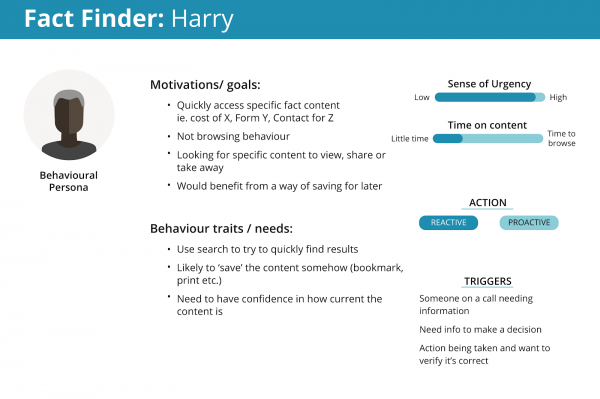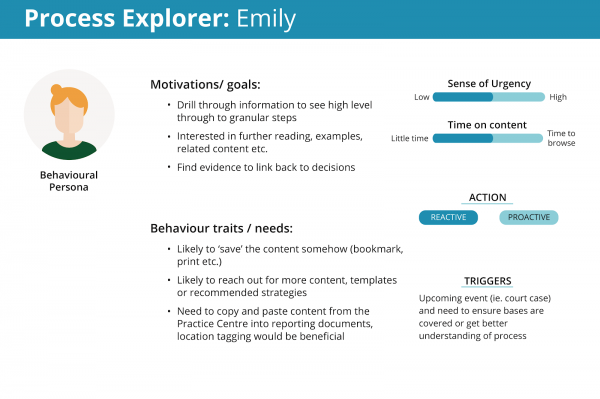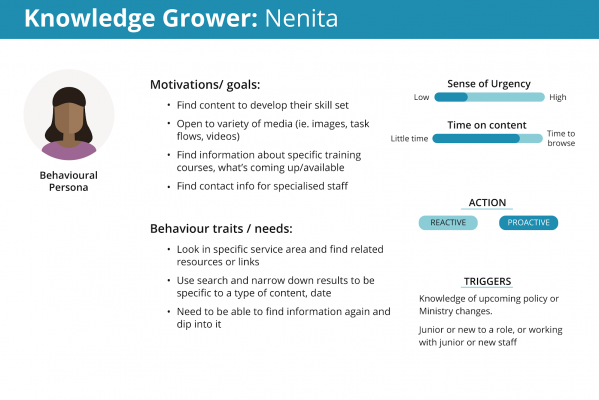Personas and behaviours
We use 3 personas to help us structure and write our content. The fictional characters were developed after research with Oranga Tamariki staff that showed 3 modes of behaviour — finding facts, exploring process, and growing knowledge and practice.Persona 1. Fact finder
In this mode, staff need a specific, precise answer to a question. They don’t have time to mess around, and failing to find what they need or seeing too much information on the page leads them to give up and ask someone else.

Download Fact Finder Harry image (PNG 191 KB)
Persona 2. Process explorer
In this mode, staff are interested in seeing the bigger picture of what they’re doing — how does the information connect together, and what order do things go in?

Download Process Explorer Emily image (PNG 208 KB)
Persona 3. Knowledge grower
In this mode, staff have time to digest a larger volume of information, but they’re still reading on a screen, and they can’t spend all day searching for information.

Download Knowledge Grower Nenita image (PNG 215 KB)
Using the personas
We use the personas to interrogate content and check it meets the needs of each mode of behaviour.
Consider what each persona might be looking for in relation to a topic.
- Can you find the information?
- Is it clear?
- What might be confusing or missing as you look at the information with each persona’s hat on?
Example – For supervision agreements:
- Fact Finder Harry — what must a supervision agreement contain?
- Process Explorer Emily — what’s the process for creating a supervision agreement?
- Knowledge Grower Nenita — are there links to more information?
Other audiences
We write our content for staff within Oranga Tamariki.
We also consider that our content may be read by:
- the children’s workforce outside of Oranga Tamariki (including government agencies and NGOs)
- caregivers and whānau or family
- members of the community who are concerned about a tamaiti, like teachers or iwi
- tamariki we’re working with.
